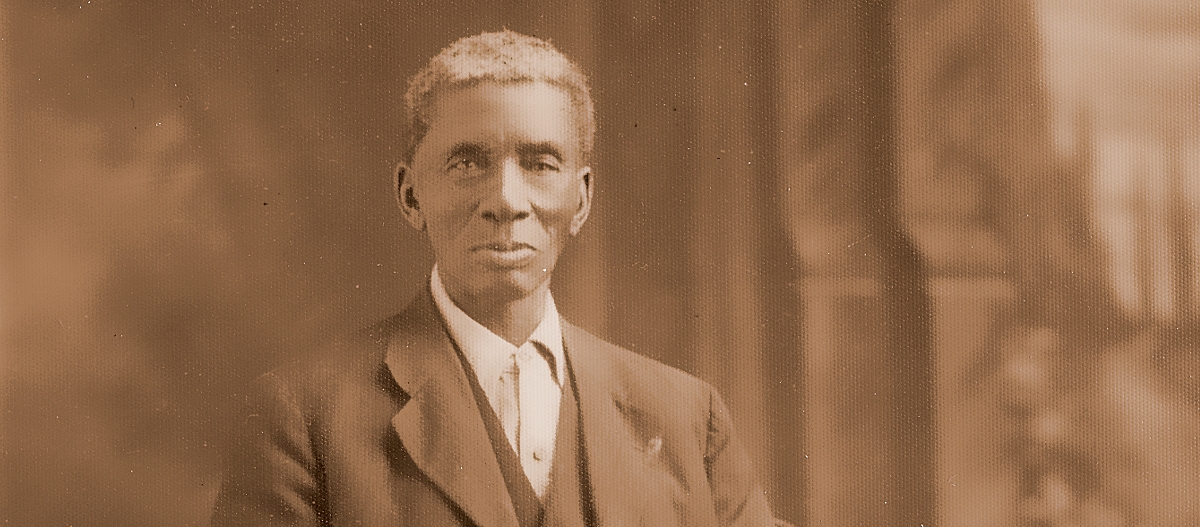By SUZANNE WARING
The Hays family had just moved onto land near Sarpy Creek in southern Rosebud County, Mont., when a black cowboy came riding his horse into the yard. He introduced himself as a neighbor. As the two men were visiting, the black man looked around and inquired as to whether the family had a milk cow.
Mr. Robert E. “Pudge” Hays admitted they didn’t. The next day, the cowboy returned leading a cow and her calf. “Here’s a cow you can use to have milk for the children,” he said. “Children need milk.” This caring gesture continues to be told by descendants of the Hays family, three generations later.
That kind man was Joseph ‘Proc” Proctor, who is the 2019 recipient of the Montana Cowboy Hall of Fame Legacy Award from District 3, which includes Rosebud County.
Proc was born into slavery in Burnett, Texas, around 1856. His father was sold to a neighboring plantation, but the sympathetic owner allowed him to return to his family every Saturday evening, so they could spend Sunday together.
Proc remembered when the black people were freed and given a sack of corn by the slave owner as they were sent on their way.
Proc eventually got to Montana by joining up with different cattle companies taking herds north. He became an exceptional herder and horse wrangler, which always afforded him a job, despite the color of his skin.
Eventually, he joined the John T. Murphy’s 79 ranch with headquarters near Ryegate, where the cattle grazed along with the buffalo before the buffalo herds were wiped out.
After Murphy closed out, Proc moved around a bit and then settled with the R U R horse outfit in 1885. He stayed with them until they closed out in 1908.
In 1900 he met Elizabeth “Lizzie” McHarg, an African American girl who had come north from Missouri by boat and worked for a family in Miles City. She became Mrs. Joseph H. Proctor in 1901. He was 45 years old, and she was 21.
The Proctors took up a homestead to ranch in the Castle Rock area near where Colstrip is today and not far from where Proctor delivered the milk cow to the Hays family. It was located 40 miles from town, and, at first, there were no neighbors. A trip to town took one day of travel each way.
In 1931 when Proc was 75 , the couple sold their large ranch and moved to a small spread on Sheep Creek, which was closer to Forsyth. Over the years, their two daughters, Martha and Sarah, learned to be good riders and to take part in cattle work. Both eventually married, but not until late into their lives.
Having grown up in Texas where rattle snakes were enormous and lethal, Proc was famously afraid of them. When some snakes got behind the blackboard at the school where Martha and Sarah attended, the teacher sent the girls to ask their father to remove the snakes. His fear arising, yet fully determined to fulfill his obligations, he took his shotgun and let loose on the blackboard. On what was left of the board, he wrote, “I kilt yore snakes.”
One summer it was rainy, so Proc and his helper couldn’t hay. They picked pails of currents and gooseberries until “Lizzie” got tired of making jellies and jams. Proc would make jelly glasses from bottles. He would use a hot ring to cut the top off smooth.
In 1934, the 50th anniversary of the Montana Stockgrowers Association Convention was held in Miles City. All the ranchers in Rosebud County were planning to attend. When asked, Proc told neighbors that he wouldn’t be attending. Area ranchers were determined that he should, so they had the county attorney serve him a subpoena to attend. During the Stockgrowers parade, he was found on the chuckwagon with the roundup cook.
Proc died in 1938, and in his obituary one sentence read “… kindly disposition and gentlemanly traits of character served to implant in the minds of who knew him that their confidence in, and esteem for, him were never misplaced.”
Cowboy poet Wally McRae commemorated Joseph Proctor’s cowboying skills and life in the book, Cowboy Curmudgeon, with the poem “Ol’ Proc” by telling his life in rhyme.
Proc now rightly sits among the other remembered cowboys of the Montana Cowboy Hall of Fame. MSN









